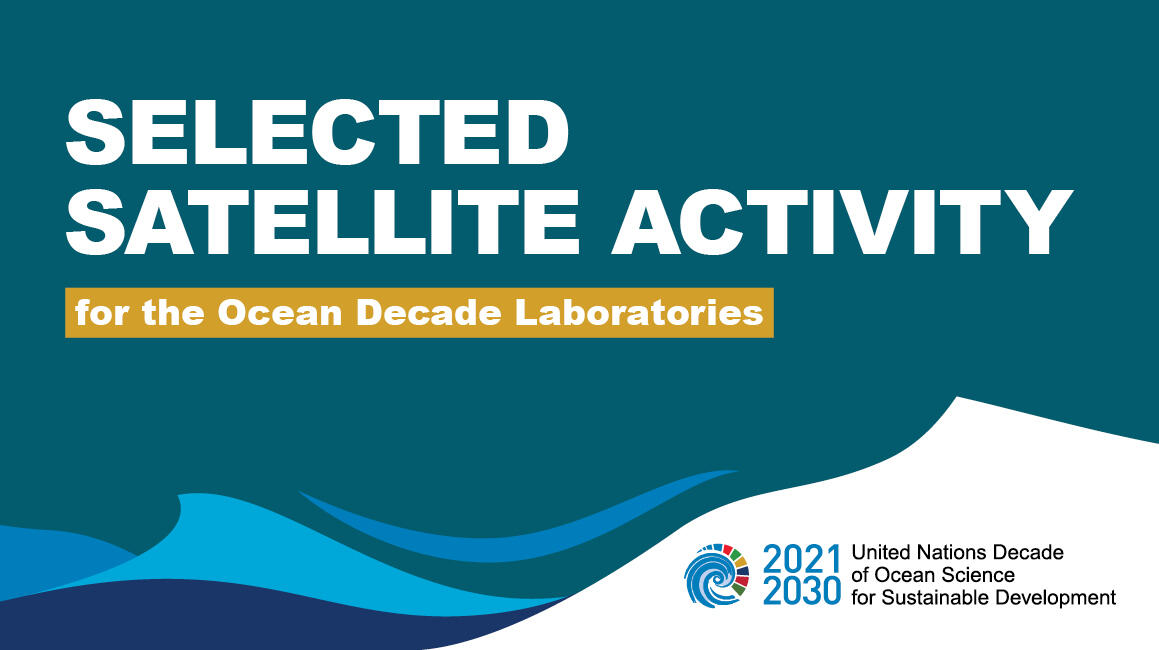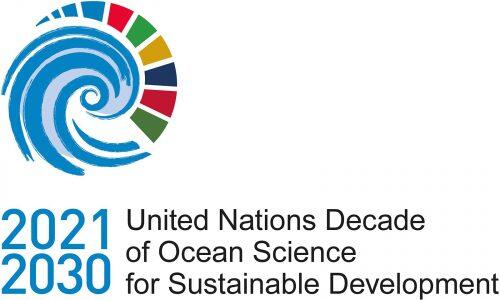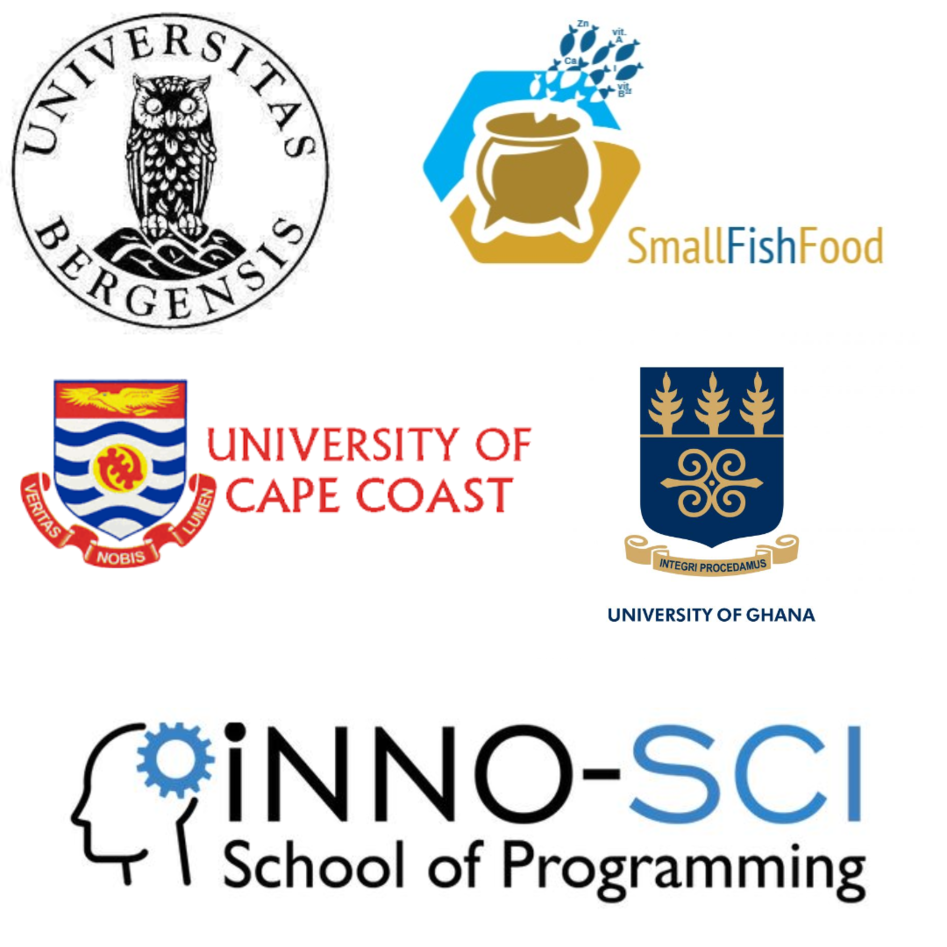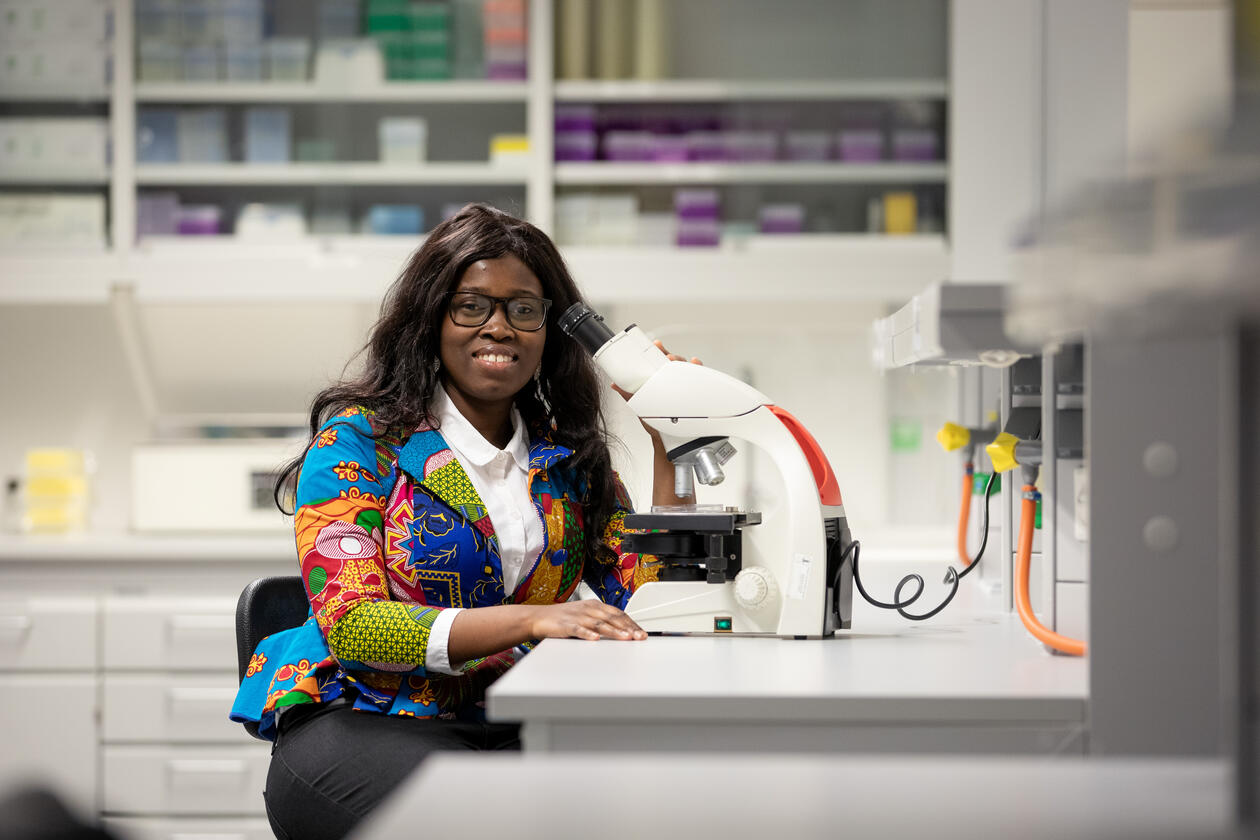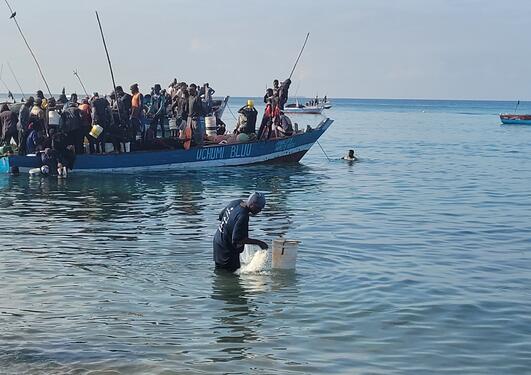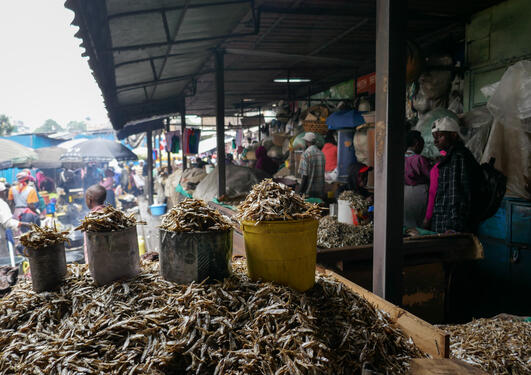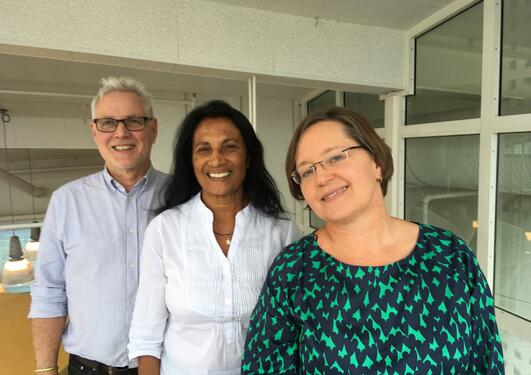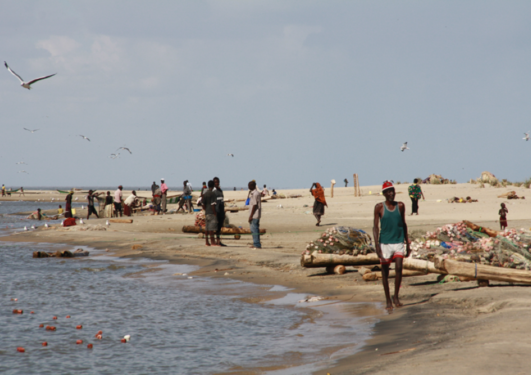UN Ocean Decade: The Contribution of Small-Scale Fisheries to Sustainable Livelihoods and Nutrition Security in Ghana
This event is an official Ocean Decade Laboratory and is organised by the University of Bergen with partners in Ghana and Norway and the SmallFishFood project as part of the UN Ocean Decade (2021-2030). The event will be online and open to all interested parties. Registration is now open.

Main content
This satellite activity aims to strengthen and facilitate stronger collaboration between stakeholders involved in the fish supply chain in Ghana to improve their livelihoods while ensuring the consumer ends up with high nutritional quality fish. The satellite activity would create a platform for indigenous fish stakeholders often left behind to actively engage in the global discourse related to UN Sustainable Development Goal (SDG) 14 (Life below water) and SDG 2 (Zero hunger). The activity dialogue will be focused on the Ocean Decade challenges 3 (sustainably feed the global population) and 4 (develop a sustainable and equitable ocean economy) by 2030.
- Relevant hashtags: #SaveOurOcean #OceanDecade #SDG14
Agenda
- Sustainable livelihoods in Ghana’s fishery sector
- Ghana’s fish supply chain: Challenges and New Opportunities
- Utilization of small fish in Ghana’s School Feeding Programme
- Utilization of small fish in the diets of children
Approach
- Short introduction and presentation by speakers (30 min)
- Dialogues between experts and local stakeholders (25 min)
- Interactive session with Q&A from the audience (20 min)
- Wrap-up session, with closing remarks and feedback forms (10 mins)
Speakers
- Dr. Marian Kjellevold, Institute of Marine Research, Norway
- Professor Ragnhild Overå, University of Bergen, Norway
- Professor Jeppe Kolding, University of Bergen, Norway
- Dr. Isaac Okyere, University of Cape Coast, Ghana
- Dr. Noble Asare, University of Cape Coast, Ghana
- PhD Candidate Santiago De la Puente, University of British Columbia, Canada
- PhD Candidate Richard Stephen Ansong, University of Ghana
- Mr. Abaka Edu, Western Regional Secretary of Ghana National Canoe Fishermen Council, Ghana [Read this report for background.]
- Mr. Jojo Solomon, President of Ghana National Canoe Fishermen Council, Ghana
- Ms. Emelia Abaka, Vice President of National Fish Processors and Traders Association, Ghana [Read this report for background.]
- Ms. Rebecca Sackey, Officer at Fisheries Commission, Ghana
Co-moderators
- Research assistant Christiana Naana Sam, University of Bergen
- PhD candidate Jessica L. Fuller, University of Bergen
- Student Maximilian Ratusinski, University of Bergen
Description
Fish is a rich source of highly digestible protein, long-chain fatty acids (LC-PUFA), omega-3 fatty acids, and micronutrients and fish consumption contribute to food and nutrition security globally (Hicks et al., 2019; Aakre et al., 2020; Tacon et al., 2020). Fish also serve as a significant source of livelihood sustaining millions of people in local communities especially in Low and Middle-Income Countries (LMICs) (Béné & Heck, 2005). There is a huge dependency on fish as an important source of animal protein nourishing the staple food diets, which are predominantly cereals and tubers in sub- Sahara Africa (Akonor et al., 2021; Kolding et al., 2019). In West Africa, particularly Ghana, the Gambia and Sierra Leone fish contributes to about 50 per cent of total animal protein intake contributing substantially to food and nutrition security (FAO, 2018). Fish is used in the preparation of classic delicacies with the mean per capita annual consumption estimated at 26 kg in Ghana (FAO, 2016; Onumah et al., 2020). For poor households, there is high patronage of small fish species such as anchovies that are affordable and accessible all year round (Onumah et al., 2020). The inclusion of small fish species (consumed whole with head and bones) in the diets provides essential minerals, vitamins and dietary protein lacking in the starchy foods (Kolding et al., 2019; Pauly, 2019)
These fish species are often landed in large quantities preserved mostly by drying or smoking for long shelf life and facilitate distribution to local markets and neighbouring countries such as Togo (Nti et al., 2002; N’Souvi et al., 2021). In Ghana, the fish supply chain is mostly faced with disruptions caused by inadequate storage facilities and unreliable distribution channels that increased during the COVID-19 pandemic. This often leads to fish spoilage, loss of nutritional quality, loss of profits and investments by local fish stakeholders along the value chain (Kruijssen et al., 2020). Subsequently, this affects the socio-economic status and families of the 2.7 million Ghanaians (fishermen, fish processors, retailers, and distributors) whose livelihoods depend on fish (Akpalu et al., 2018). For the consumers, the nutritional quality and safety of fish on their plate and more importantly its contribution to the dietary requirements of macro and micronutrients are affected. The State of Food Security and Nutrition in the World 2021 indicates West Africa had the sharpest increase in the prevalence of undernourishment globally. The report highlights the significant increase from 50.6 to 75.2 million people from the year 2019 to 2020 (FAO, 2021).
The objective of this satellite activity is to strengthen and facilitate stronger collaboration between stakeholders involved in the fish supply chain in Ghana to improve their livelihoods while ensuring the consumer ends up with high nutritional quality fish.
Bibliography
- Aakre, I., Bøkevoll, A., Chaira, J., Bouthir, F. Z., Frantzen, S., Kausland, A., & Kjellevold, M. (2020). Variation in nutrient composition of seafood from North West Africa: Implications for food and nutrition security. Foods, 9(10). https://doi.org/10.3390/foods9101516
- Akonor, P. T., Atter, A., Owusu, M., Ampah, J., Andoh-Odoom, A., Overå, R., Kjellevold, M., Pucher, J., & Kolding, J. (2021). Anchovy powder enrichment in brown rice-based instant cereal: a process optimization study using Response Surface Methodology (RSM). Food Science & Nutrition, 00(1), fsn3.2424. https://doi.org/10.1002/FSN3.2424
- Akpalu, W., Sundstøl Eriksen, S., & Kofi Vondolia, G. (2018). NUPI Report: The Fisheries Sector in Ghana. Norwegian Institute of International Affairs. www.nupi.no
- Béné, C., & Heck, S. (2005). Fish and Food Security in Africa. Philosophical Transactions of the Royal Society B, 28(3), 5–12.
- FAO (2018). WORLD FISHERIES AND AQUACULTURE. www.fao.org/publications
- FAO, IFAD, UNICEF, WFP and WHO. 2021. The State of Food Security and Nutrition in the World 2021. Transforming food systems for food security, improved nutrition, and affordable healthy diets for all. Rome, FAO. https://doi.org/10.4060/cb4474en
- FAO. (2021). The State of Food Security and Nutrition in the World 2021. The State of Food Security and Nutrition in the World 2021. https://doi.org/10.4060/CB4474EN
- Hicks, C. C., Cohen, P. J., Graham, N. A. J., Nash, K. L., Allison, E. H., D’Lima, C., Mills, D. J., Roscher, M., Thilsted, S. H., Thorne-Lyman, A. L., & MacNeil, M. A. (2019). Harnessing global fisheries to tackle micronutrient deficiencies. Nature, 574(7776), 95–98. https://doi.org/10.1038/s41586-019-1592-6
- Kolding, J., Zwieten, P. van, Marttin, F., & Smith, S. (2019). Freshwater small pelagic fish and their fisheries in the major African lakes and reservoirs in relation to food security and nutrition. In Freshwater small pelagic fish and their fisheries in the major African lakes and reservoirs in relation to food security and nutrition. https://doi.org/10.4060/ca0843en
- Kruijssen, F., Tedesco, I., Ward, A., Pincus, L., Love, D., & Thorne-Lyman, A. L. (2020). Loss and waste in fish value chains: A review of the evidence from low and middle-income countries. Global Food Security, 26, 100434. https://doi.org/10.1016/J.GFS.2020.100434
- Nti, C. A., Plahar, W. A., & Larweh, P. M. (2002). Impact of adoption in Ghana of an improved fish processing technology on household income, health, and nutrition. In International Journal of Consumer Studies (Vol. 26).
- N’Souvi, K., Sun, C., Zhang, H., Broohm, D. A., & Okey, M. K. N. (2021). Fisheries and aquaculture in Togo: Overview, performance, fisheries policy, challenges and comparative study with Ghana, Mali, Niger and Senegal fisheries and aquaculture. Marine Policy, 132, 104681. https://doi.org/10.1016/J.MARPOL.2021.104681
- Pauly, D. (2019). Micronutrient richness of global fish catches. Nature: International Weekly Journal of Science. http://www.vliz.be/en/search-persons?module=ref&refid=317087
- Tacon, A. G. J., Lemos, D., & Metian, M. (2020). Fish for Health: Improved Nutritional Quality of Cultured Fish for Human Consumption. In Reviews in Fisheries Science and Aquaculture (Vol. 28, Issue 4, pp. 449–458). Taylor and Francis Inc. https://doi.org/10.1080/23308249.2020.1762163
